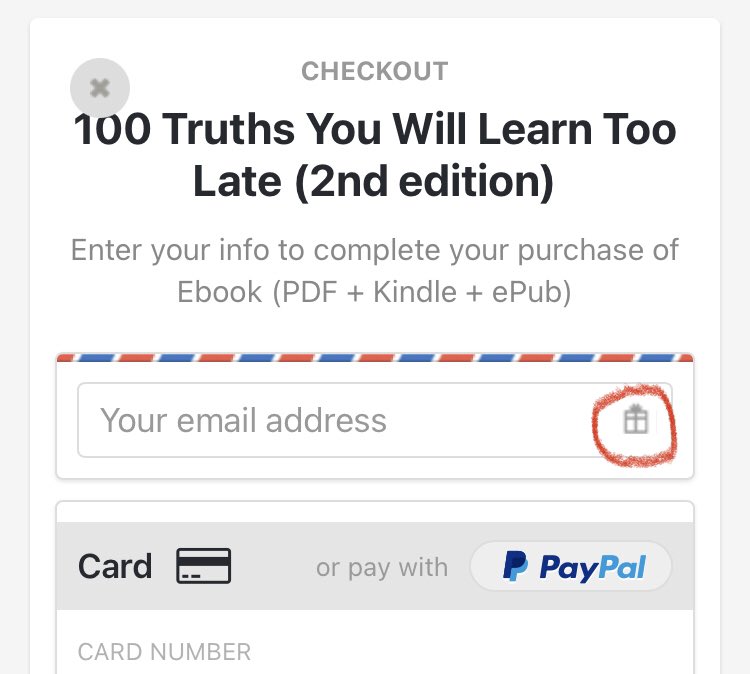
ON GETTING MOTIVATION – OPTIMIZE FOR BITE-SIZED IMPROVEMENTS
I can pinpoint very clearly the moment in which you lost motivation: the moment you stopped receiving clues that you were improving.
(thread, 1/N)
I can pinpoint very clearly the moment in which you lost motivation: the moment you stopped receiving clues that you were improving.
(thread, 1/N)
2/ We use to say that motivation drives improvement, but it’s the other way around.
We are wired for continuing at whatever venture we receive frequent clues we are improving at – including inconsequential activities, such as videogames.
We are wired for continuing at whatever venture we receive frequent clues we are improving at – including inconsequential activities, such as videogames.
3/ For some, videogames represent both the peak intellectual effort of their days and the peak inconsequentiality of their actions.
As irrational and wasteful as it looks, it is coherent with the way our brain works.
(see below)
As irrational and wasteful as it looks, it is coherent with the way our brain works.
(see below)
4/ Unless survival is at stake, we do not allocate effort based on material rewards but on emotional ones.
And one of the strongest emotional reward is a sense of progress, largely delivered in dopamine packets.
And one of the strongest emotional reward is a sense of progress, largely delivered in dopamine packets.
5/ Game designers know this and hook us to their games with frequent clues of improvement – level-ups, for example.
Everyone else seems to forget this effective tactic, with the result of a widespread lack of motivation to do anything.
Everyone else seems to forget this effective tactic, with the result of a widespread lack of motivation to do anything.
6/ (Monthly salaries seem to be the prominent case in which a constant drip is used to keep us from drifting away, but the rewards are too spaced in time & too uncorrelated to our actions to generate motivation.
The result? Nothing more than a zombie-like addiction to payrolls.)
The result? Nothing more than a zombie-like addiction to payrolls.)
7/ What does this mean for yourself?
8/ To get better at something, optimize for bite-sized improvement.
Simply saying, “optimize for improvement” without the “bite-sized part” would both be banal and misleading.
It assumes that internal motivation is an already-solved problem – it's seldom the case.
Simply saying, “optimize for improvement” without the “bite-sized part” would both be banal and misleading.
It assumes that internal motivation is an already-solved problem – it's seldom the case.
9/ The improvement you look for must be bite-sized enough that each action of yours causes a visible improvement.
Duolingo – a popular language learning app – applies this principle.
Every 2-3 minutes you use it, you learn a couple of sentences with a practical use.
Duolingo – a popular language learning app – applies this principle.
Every 2-3 minutes you use it, you learn a couple of sentences with a practical use.
10/ You cannot miss your progress, and the progress keeps you studying. This is what you want to do for yourself: practice in a way that you cannot miss your improvement during each single session (not after).
11/ Seeing improvement during the practice session will make you want to practice more.
Seeing improvement after the practice, or no improvement at all, will make you lose all motivation or – worse – suggest that improvement is attainable in ways that do not involve practice.
Seeing improvement after the practice, or no improvement at all, will make you lose all motivation or – worse – suggest that improvement is attainable in ways that do not involve practice.
12/ Everyone is frustrated if they cannot lose weight, but only fit people are frustrated if they cannot go to the gym.
The difference between the two groups is that the latter built an association between the result and the action that causes it.
The difference between the two groups is that the latter built an association between the result and the action that causes it.
13/ This matters because we can only build such kind of links through bite-sized improvements: the only type of reward which comes consistently enough and quickly enough after the practice to be intuitively associated to it.
14/ “Optimize for bite-sized improvement” means that before each practice session, you pick a bite-sized improvement you want to achieve in that session and optimize for it.
15/ For example, if you are playing basketball, you might focus simply on jumping slightly higher during rebounds.
If you manage to produce immediately visible evidence that during the session you improved at something, you’ll keep practicing.
If you manage to produce immediately visible evidence that during the session you improved at something, you’ll keep practicing.
16/ Be your own game-designer and optimize for your own engagement.
• • •
Missing some Tweet in this thread? You can try to
force a refresh





